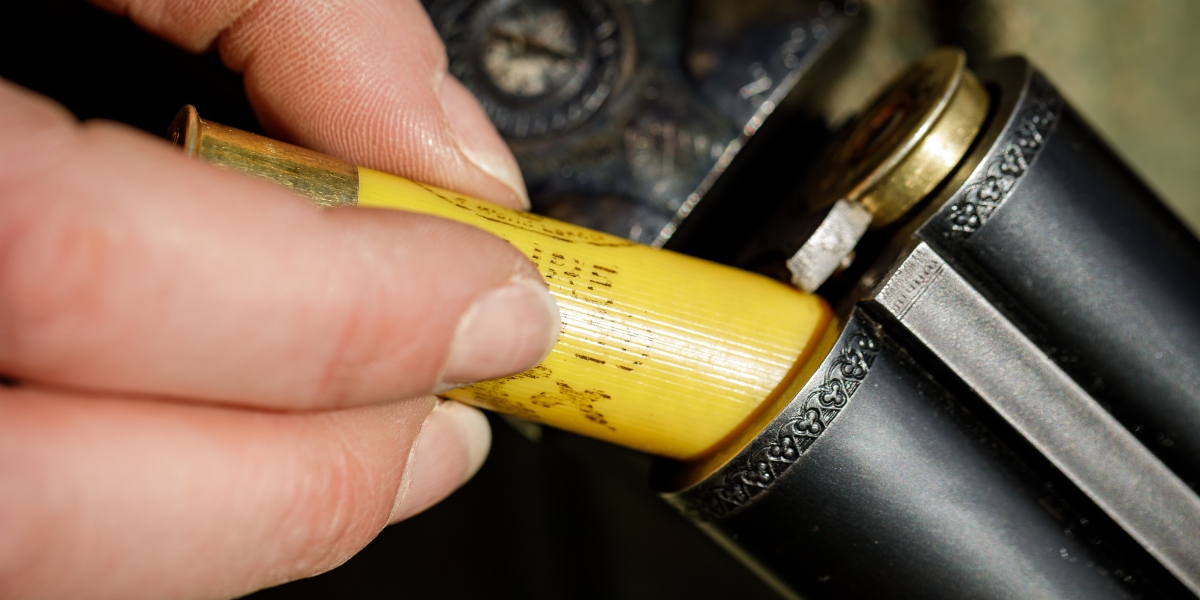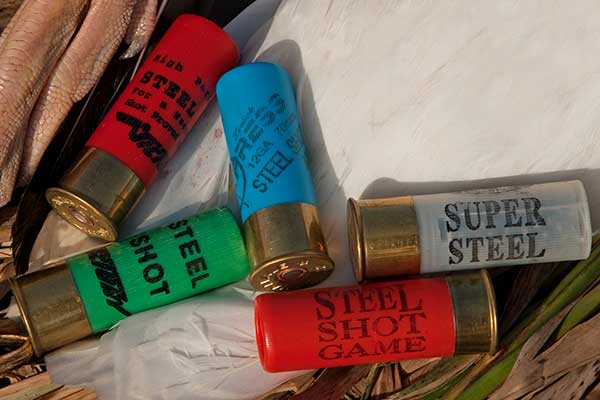
The view from afar
Our friends from overseas provide an insight into how hunters in their countries have adapted to using non-lead ammunition.
Get information on the legal shooting season for mammals and birds in the UK.
Apply for funding for your project or make a donation today
Comprehensive information and advice from our specialist firearms team.
Everything you need to know about shotgun, rifle and airgun ammunition.
Find our up-to-date information, advice and links to government resources.
Everything you need to know on firearms law and licensing.
All the latest news and advice on general licences and how they affect you.

As we mark five years since the start of the voluntary transition away from lead shot and single use plastics for live quarry shooting, BASC’s Terry Behan reflects on what has been achieved and looks ahead to the next steps.
It’s been five years since the announcement of the voluntary transition away from lead shot and single-use plastics for live quarry shooting – committed to in 2020 by nine leading rural organisations, including BASC.
As we reach this milestone, significant progress has been made. Market-led solutions have emerged, education and awareness have increased, and the sector has demonstrated its ability to adapt and innovate.
With the government reaching the end of the 12-week period given to respond to the Health and Safety Executive’s (HSE) proposals on 7 March , we now wait to see how they will proceed.
While an announcement may not come immediately, we must build on the achievements of the last five years and continue supporting the transition away from lead shot and single-use plastics until legislation is in place.
We remain committed to the transition away from lead shot and single use plastics and we will continue to work with our members, educate the shooting community and invest in wider research to ensure they are prepared.
Alongside that, we will continue to engage with the government and its agencies to ensure that any final decisions on lead ammunition are practical, proportionate, and based on clear evidence.
Over the past five years, major strides have been made in the availability and effectiveness of lead-free shotgun cartridges. Manufacturers have responded to demand, developing new and practical alternatives and nearly every major shotgun cartridge manufacturer is now producing a non-lead cartridge. There are now more than 150 types of sustainable cartridge available, ranging from 12 gauge to 16 gauge.
Product innovation has also seen the introduction of biodegradable wads, giving us the ability to use steel shot without single use plastics. This is a significant step forward for the future of shooting.
BASC has also invested considerable time into education – thousands of people have attended BASC’s sustainable ammunition events since 2020, before then switching to lead-free ammunition themselves.
The impact of the transition is already being seen in the field. Many shoots have embraced lead-free ammunition, game dealers are increasingly sourcing lead-free game, and retailers are responding to consumer demand for more sustainable products. Through a combination of industry innovation and engagement with the shooting community, BASC and its members have demonstrated that sustainability and shooting can go hand in hand.
As the government prepares to announce its decisions on lead ammunition legislation, BASC urges ministers to reconsider a key element of the HSE’s recommendations – the proposed reclassification of large calibres to include .243. This proposal lacks a scientific basis and could have unintended consequences for pest control, deer management and target shooting.
There is sufficient evidence that shows stabilisation issues with .243 calibres, supported by a technical report presented by BASC. As a result, potentially 60,000 people who use .243 for deer management will have to re-barrel their rifles (80 grain .243 bullets do not stabilise in predominantly older rifles with a 1 in 10 twist as they need to be 1 in 8). This will have a potentially significant adverse effect on the national deer cull. We lobbied the HSE for large calibres to be set at 6.5mm and will continue to lobby the government.
Beyond this, it is essential that any legislation acknowledges the progress already made and builds upon it. It must be based on clear evidence, providing realistic and practical transition periods to allow shooters and businesses to continue adapting.
Clarity will also be crucial. Any new restrictions must be accompanied by clear guidance from government, ensuring that those affected understand their responsibilities and have the necessary support to comply.
Most importantly, the government must recognise that shooting is not just a pastime – it is a vital part of the rural economy, conservation efforts, and wildlife management. Any legislative changes should reflect this reality, ensuring that shooting remains viable, sustainable, and accessible.
The past five years have shown what can be achieved when the shooting community takes the lead on sustainability. We have worked towards an evidence-based solution that balances sustainability, animal welfare, and the practical realities of ammunition availability.
BASC remains committed to working alongside government, stakeholders, and the wider shooting sector to ensure that any future legislation is fair, practical, and grounded in evidence.
As we look ahead, the focus must be on a sensible, phased approach. With the right decisions from government, we can build on the progress made and ensure that the future of shooting is sustainable for generations to come.

Our friends from overseas provide an insight into how hunters in their countries have adapted to using non-lead ammunition.

Read our letter to the Guardian on the subject of medical verification in firearms licensing, and the key issues that surround this.

Neil Morrison examines the ballistic properties of steel shot and advises how to get the best results when using it to shoot wildfowl.
Sign up to our weekly newsletter and get all the latest updates straight to your inbox.
© 2025 British Association for Shooting and Conservation. Registered Office: Marford Mill, Rossett, Wrexham, LL12 0HL – Registered Society No: 28488R. BASC is a trading name of the British Association for Shooting and Conservation Limited which is authorised and regulated by the Financial Conduct Authority (FCA) under firm reference number 311937.
BASC Direct Ltd is an Introducer Appointed Representative of Agria Pet Insurance Ltd who administer the insurance and is authorised and regulated by the Financial Conduct Authority, Financial Services Register Number 496160. Agria Pet Insurance is registered and incorporated in England and Wales with registered number 04258783. Registered office: First Floor, Blue Leanie, Walton Street, Aylesbury, Buckinghamshire, HP21 7QW. Agria insurance policies are underwritten by Agria Försäkring.
If you have any questions or complaints about your BASC membership insurance cover, please email us. More information about resolving complaints can be found on the FCA website or on the EU ODR platform.